
While our reliance on horses has decreased over the years with the invention of the combustion engines, horses are still used on farms and in rural areas as means of transport or for farm work. They are also important for many as pets or recreational animals. Unfortunately, as with all animals, there are various disease and conditions that can lead to severe illness or death in horses and other equines. Some of these are discussed below, but the list is in no means exhaustive.
COLIC
Description: Colic refers to abdominal pain caused by gastrointestinal issues. It can be due to gas, impaction, or twisted intestines.
Symptoms: Rolling, pawing, sweating and refusal to eat.
Prevention: Consistent feeding schedules, access to clean water and regular dental care.
Colic is one of the leading causes of death in horses, but is not caused by a pathogen. Colic is particularly dangerous for horses due to their unique anatomical and physiological characteristics. Horses have a complex and elongated digestive system, making them highly susceptible to various gastrointestinal disturbances, such as blockages, gas build-up and twists (torsions) in their intestines. The horse's inability to vomit exacerbates the situation, as they cannot expel harmful substances or relieve pressure in their stomach, leading to severe pain and the potential for stomach or intestinal rupture.
There are several causes of colic, including dietary indiscretions, sudden changes in feed, lack of water intake, and internal parasites, adding to the complexity of diagnosing and treating the condition.
Bu hikaye Farmer's Weekly dergisinin Farmer's Weekly 14 June 2024 sayısından alınmıştır.
Start your 7-day Magzter GOLD free trial to access thousands of curated premium stories, and 9,000+ magazines and newspapers.
Already a subscriber ? Giriş Yap
Bu hikaye Farmer's Weekly dergisinin Farmer's Weekly 14 June 2024 sayısından alınmıştır.
Start your 7-day Magzter GOLD free trial to access thousands of curated premium stories, and 9,000+ magazines and newspapers.
Already a subscriber? Giriş Yap

When short-term rentals make sense
Bianca Smit, national operations manager at CFAO Equipment SA, outlines factors to consider when choosing a rental equipment partner.
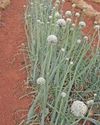
The timing of onion sowing is critical
Each onion variety has a different resistance to bolting, thus growers need experience and knowledge to guide them,
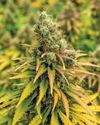
Understanding cannabis and hemp regulations in South Africa
South Africa's cannabis and hemp regulations remain a topic of debate and uncertainty, particularly when it comes to commercial use and small-scale production. Cannabis experts Shaad Vayej and Trenton Birch spoke to Octavia Avesca Spandiel about the challenges that small-scale cannabis and hemp farmers face.

European seed's influence on the US cannabis market
The expansion of European cannabis seed onto the US market is not just about economic growth; it’s also about enriching the landscape of US cannabis with diversity, innovation and education,
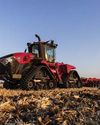
'It's important to get the right tool for the job'
The adoption of technology is crucial to sustaining efficiency gains and beating the cost-price squeeze in the agriculture sector.
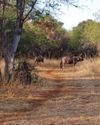
A brilliant bushveld break between Bela-Bela and Modimolle
The distinctive touch, diligence, and 24/7 customer care are just a few of the reasons you should visit four-star Tourism Council-graded Pumula Game Farm,

John Deere: elevating performance and efficiency in modern farming
In the fast-paced world of farming, the right tools make all the difference.

The naval disaster Winston Churchill tried to hide
Three British warships were sunk by German naval gunfire on a dark day early in World War II, but the heroes who fought back received only muted recognition, possibly to avoid bad publicity,
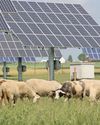
Breaking down the principles of regenerative farming
Jean Hugo, a post-graduate student at the Tshwane University of Technology, and Leon Hugo, author on environmental matters and former professor of geography at the University of Pretoria, write about the importance of regenerative agriculture for small-scale farmers, and the challenges related to making the shift.

Ectoparasite control: more tips for livestock farmers
To reduce the mayhem that uncontrolled ectoparasites can create for communal farmers, it’s best to adopt a holistic approach in conjunction with veterinary remedies,